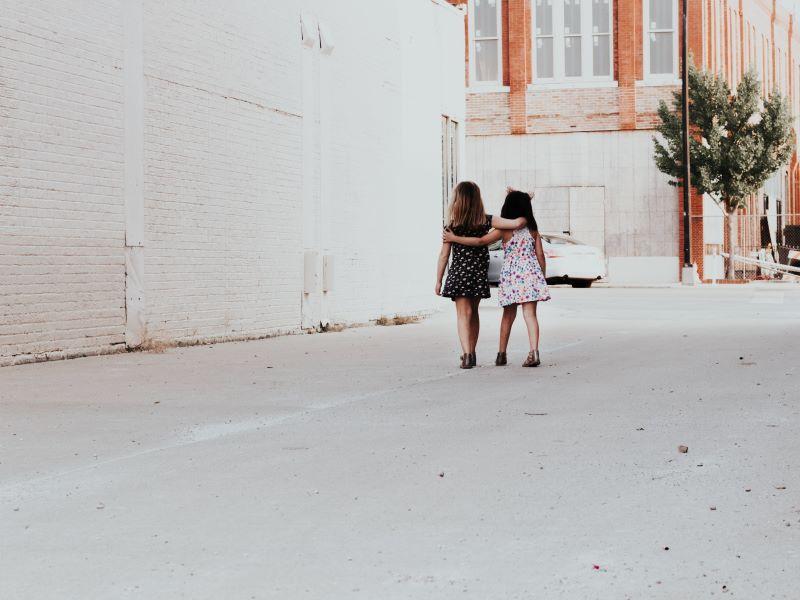During remote pandemic teaching, I worried about faculty’s abilities to quickly learn new technologies and online teaching strategies. As the pandemic wore on, I worried about faculty’s abilities to support struggling and traumatised students. Entering our second year of remote teaching, I just worried about faculty. I was seeing more than stress and burnout; I was seeing compassion fatigue, trauma, secondary trauma, grief, illness and fear. I realised that our focus on getting students through the pandemic had overshadowed the well-being of our faculty. This realisation prompted a shift in my work as a faculty developer.
Prioritising faculty wellness
My focus on pedagogy and faculty well-being was founded on a key question: does more support for faculty lead to more supportive teaching? In other words, is there a connection between faculty well-being and student outcomes? Is it easier for faculty to create equitable and compassionate courses when they themselves experience equitable and compassionate policies and practices in their departments?
- Five strategies to generate a sense of satisfaction in your academic work
- Researchers are too critical – we need to give ourselves (and others) a break
- Conversations around stress must move beyond ‘I’m fine, how are you?’
With these questions in mind, I brainstormed with colleagues about the connection between pedagogy and wellness and our role in supporting faculty. A common theme from these conversations was faculty disconnection and isolation as a result of remote teaching. But even beyond the pandemic, an academic culture that discouraged vulnerability meant that many faculty did not feel as if they could discuss their pedagogical stresses and struggles. This is where I wanted to start – creating space for struggle without judgement.
My aim became connection and affirmation. During many individual faculty meetings, the instructor would express shock and then relief when I shared that other faculty were also burnt out and overwhelmed.
I needed to get faculty talking to each other, so our division’s first step was simply creating those opportunities. I scheduled Zoom sessions with no agenda, just the topic of remote teaching and how everyone was coping. My role was simply to open the space with the acknowledgement of how much was being asked of faculty and how many other stressors they were juggling. Then I stepped back as they shared – dealing with their students’ trauma of illness, death, unemployment, homelessness and more; a lack of engagement during Zoom classes; frustrations with technology; grief over the loss of connection in the classroom. And this was all on top of their own stresses of illness, death, managing their children’s remote learning and more.
Although I couldn’t change anything about their situation, faculty at least felt that they could connect with people who understood what they were going through. These informal gatherings also gave me the opportunity to learn more about which policies and practices were making things more difficult in the classroom and which ones were helping.
I wanted to make these gatherings a permanent offering, and I also wanted to do more. But my expertise and bandwidth in this area felt limiting. This led to the creation of a new position in our division, a pedagogical wellness specialist.
What is a pedagogical wellness specialist?
The president’s office for our system of universities released a call for proposals related to the wellness of undergraduates, graduates, students, faculty and staff. So, my division drafted our vision for a pedagogical wellness specialist – a staff member who would fully devote their attention to teaching and well-being, for students and faculty. I wanted someone who could both teach wellness and build a culture of wellness at our university. I hadn’t seen a similar position in other teaching centres, so I felt this was a real opportunity to do something new and different.
At the core of this new position was my original question about the connection between faculty well-being and student outcomes. I wanted the position to explore this through research.
So, we had a dual approach: encouraging faculty to use pedagogical practices that improved students’ sense of well-being, and supporting faculty well-being as it related to their teaching. Our proposal was approved for permanent funding, and I am excited to see this work take off. Here is some of what I envision for the pedagogical wellness specialist’s work:
- workshops, reading groups and learning communities on pedagogical practices that support student wellness, such as flexible deadlines, dropping lowest test scores and creating a sense of belonging in the classroom
- recognising and responding to students in distress or crisis
- guiding faculty through specific teaching practices, such as contemplative pedagogy
- creating faculty opportunities for connection through lunches, coffee breaks and walks around campus
- offering faculty sessions on mindfulness and meditation
- advocating for faculty well-being and normalising vulnerability and asking for help
- researching possible connections between faculty well-being and student well-being and between faculty well-being and student outcomes.
Important wellness questions
As the well-being of students, staff and faculty gains more attention, there are important questions I believe universities need to grapple with when it comes to teaching and faculty:
- What happens when an instructor is in crisis and cannot continue to teach? Are there policies and practices in place to support the instructor while also ensuring the courses can be covered?
- What resources does the university offer faculty who are experiencing stress or trauma related to their teaching? Are leaders trained in recognising and responding to faculty in distress?
- Do departments create a culture of asking for help? Or do faculty fear there will be negative consequences for their career if they admit they are struggling?
My goal is for the pedagogical wellness specialist to promote these conversations and support ongoing change in academic culture that values the well-being of everyone on campus.
Andrea Aebersold is the director of faculty instructional development in the Division of Teaching Excellence and Innovation (DTEI) at the University of California, Irvine.
If you found this interesting and want advice and insight from academics and university staff delivered direct to your inbox each week, sign up for the THE Campus newsletter.



comment